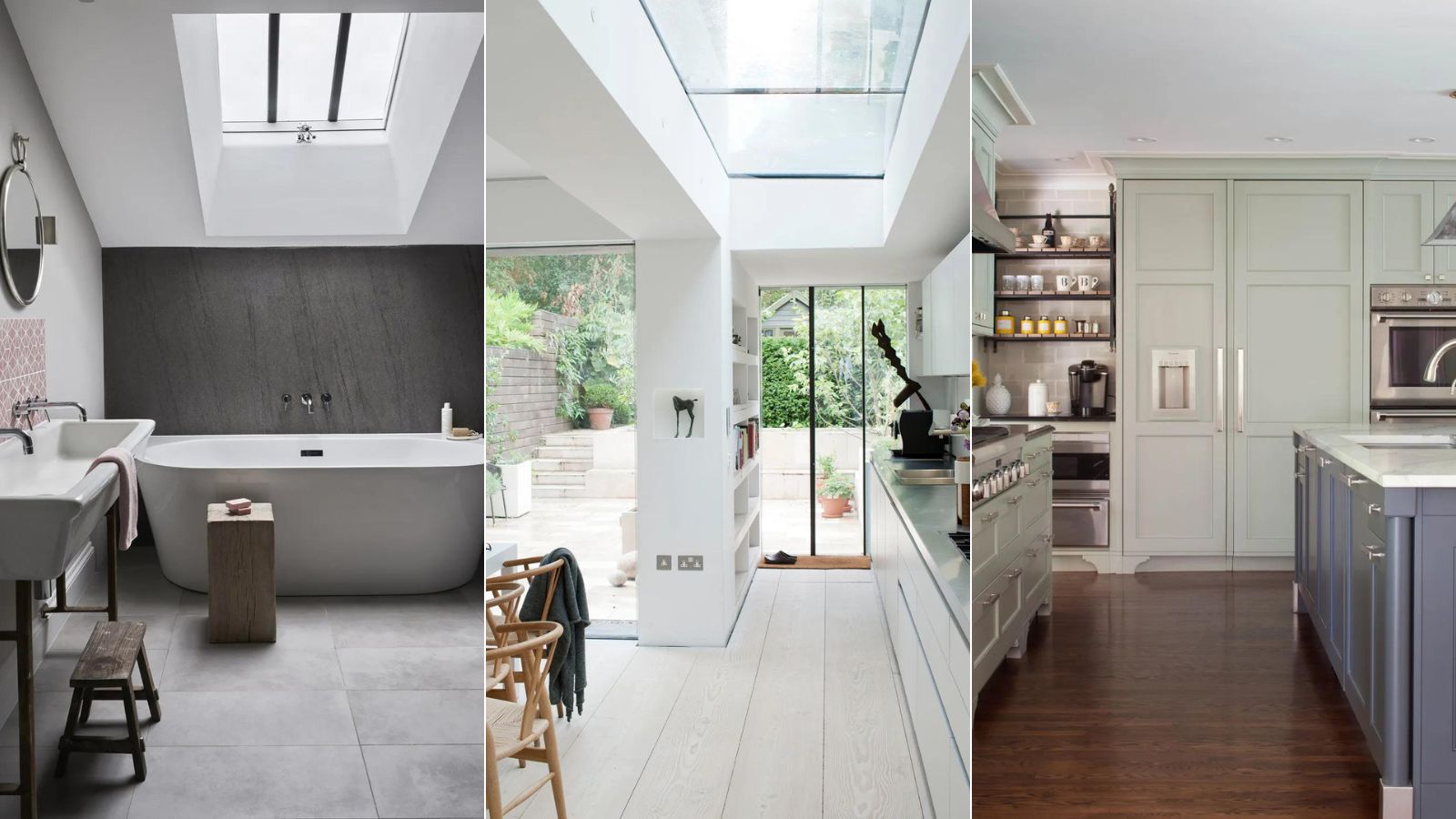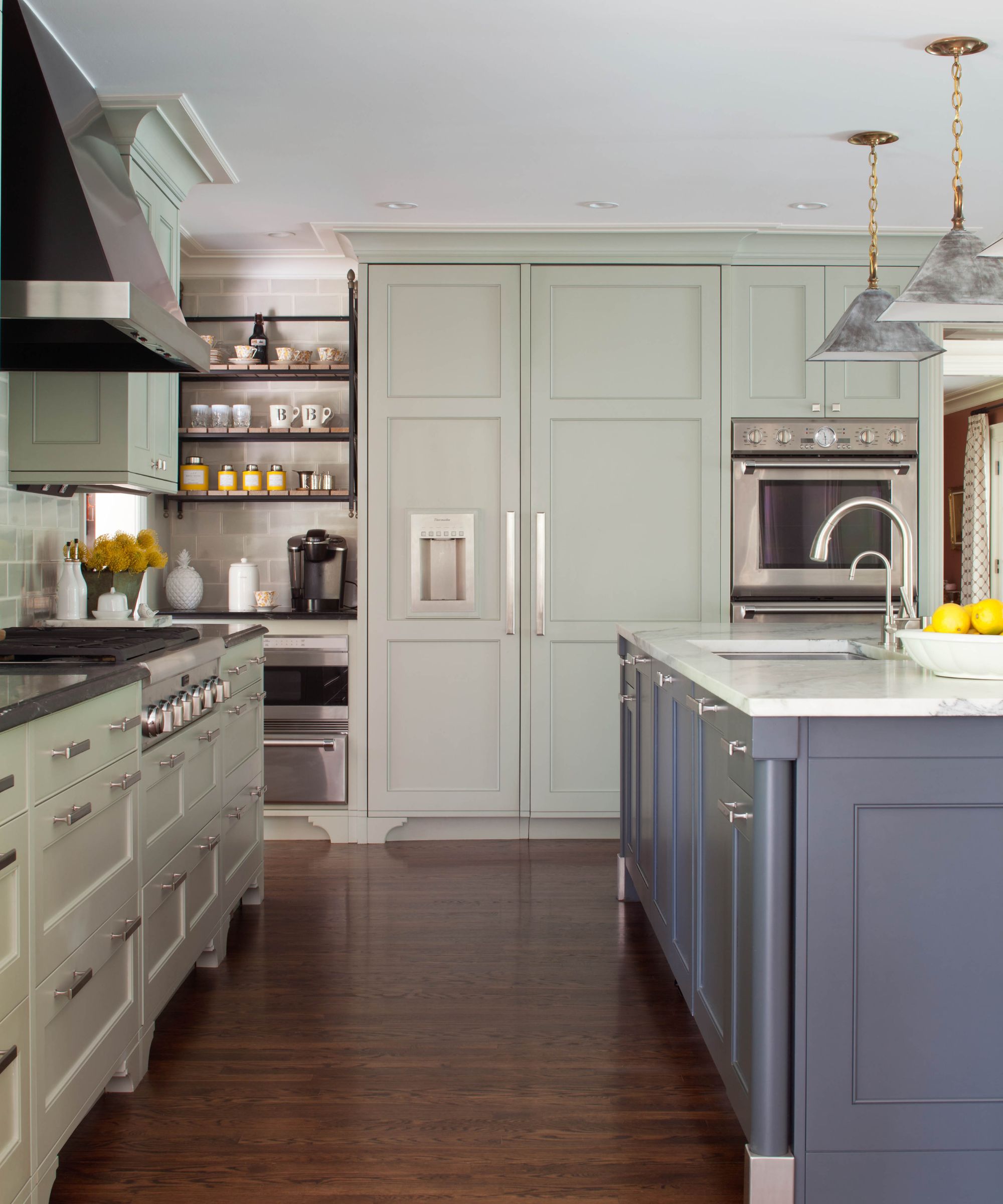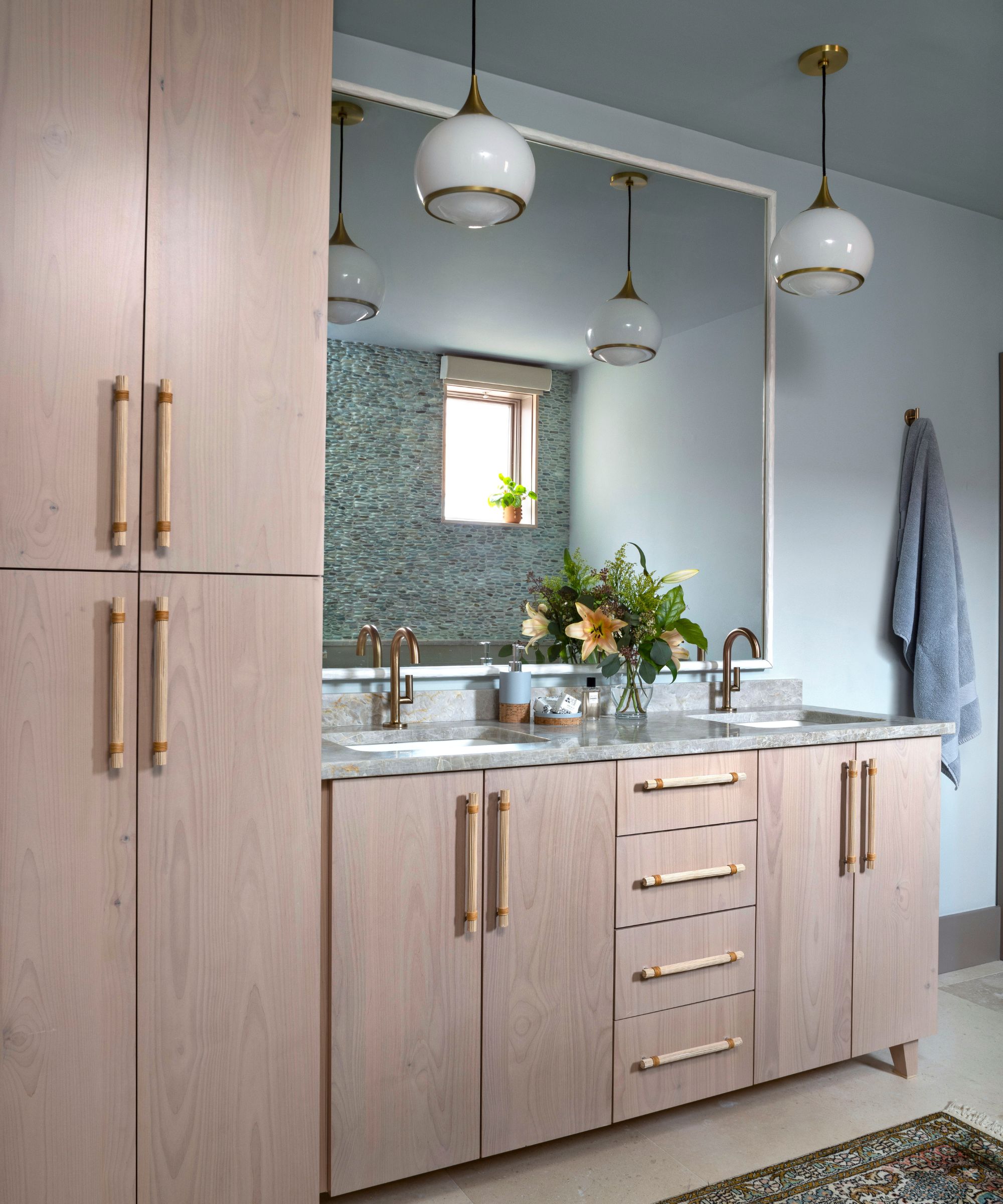Should you live on-site when renovating a property? We weigh up the pros and cons
The experts reveal the benefits to staying at home during a reno – as well as the drawbacks


Design expertise in your inbox – from inspiring decorating ideas and beautiful celebrity homes to practical gardening advice and shopping round-ups.
You are now subscribed
Your newsletter sign-up was successful
Want to add more newsletters?

Twice a week
Homes&Gardens
The ultimate interior design resource from the world's leading experts - discover inspiring decorating ideas, color scheming know-how, garden inspiration and shopping expertise.

Once a week
In The Loop from Next In Design
Members of the Next in Design Circle will receive In the Loop, our weekly email filled with trade news, names to know and spotlight moments. Together we’re building a brighter design future.

Twice a week
Cucina
Whether you’re passionate about hosting exquisite dinners, experimenting with culinary trends, or perfecting your kitchen's design with timeless elegance and innovative functionality, this newsletter is here to inspire
The question of whether you should live on-site when renovating a property doesn’t have a simple answer. Staying there and moving out can both have advantages. But take either option, and there are also downsides.
Home renovation projects can be well worth the expense and disruption for the results they bring. However, the upheaval shouldn’t be underestimated as, stay or leave for the duration, life won’t be normal.
To help you weigh up whether living on-site during a reno is the right way to go, we asked the experts to reveal the pros and the cons, and this is their advice.
Living on-site during a renovation
Remodeling – especially the three most expensive home renovation projects – requires investment, so living on-site during a renovation is definitely tempting if it will result in savings. But there are other reasons it could be the right strategy as well as those that make it a less sound idea.
The Pros

Save Money
Cost is the number one reason for many homeowners embarking on a reno to stay put since the budget for each room in a home renovation will add up. ‘To get a temporary apartment or hotel for the duration of a renovation or restoration project can be extremely costly, and the amount spent on this can outweigh the irritation of having to deal with living in a construction project,’ says Joshua Rudin, owner of ASAP Restoration and a certified restorer.
Convenience
Home is what you’re used to. ‘The ease of being in your own home versus temporary housing is a selling point that convinces most people to grin and bear it when it comes to dust and debris in their home during a project,’ says Josh.
Mallory Micetich, home care expert at Angi, agrees. ‘Staying in a rental or with family members can be helpful, but it can also disrupt your daily routine,’ she says. ‘By staying at home, you can keep your day-to-day life mostly the same. This can be particularly helpful for anyone who has to commute to work or school.’
Design expertise in your inbox – from inspiring decorating ideas and beautiful celebrity homes to practical gardening advice and shopping round-ups.
Good oversight
Stay on-site and you can keep up with the work. ‘The main advantage of being on-site is the oversight it provides,’ says Adrian Pedraza, owner of the house-flipping company The California Home Buyer. ‘You can monitor the quality of the contractor’s work up close daily. If anything seems off or subpar, you catch it right away instead of issues snowballing. I once had floor tiles installed incorrectly when I wasn’t around to inspect them – it was a pricey mistake that could have been avoided.’
Time savings
Being on-site also saves time, points out Ron Wysocarski, broker/CEO of Wyse Home Team Realty in Port Orange, FL. ‘You won’t have to commute or take time off your busy schedule to visit the site and check the work progress. Supervision is a breeze,’ he says.
Quick decision-making
Stay put and you can answer questions. ‘Home renovations may sometimes go differently than the original plan, and impromptu decisions are needed,’ says Ron. ‘Being on-site during the whole renovation process can address this need. The people working on your home can ask for you immediately since you are available. You can quickly check and discuss with the builders in real-time.‘
Improved relationships
You might work better with your pro as a result of staying in your home. ‘Remaining on-site allows you to develop a better relationship with your renovation team,’ says interior designer Artem Kropovinsky.
The Cons

Discomfort
Life will not be normal for the duration of the renovation. ‘It's really uncomfortable to live in a construction zone,’ says Toni Lewis, AIA, founding principal of Los Angeles-based Lewis Schoeplein Architects. ‘It’s dusty. It’s loud. If it rains, it may be wet. The work day typically starts early: 7am. A lot of people are coming and going, and security may be a concern.’
Extended Timelines
Being there can make the work lengthier. ‘A major drawback of living in a home while it is being renovated comes from the fact that your presence may make the project take longer than it would otherwise,’ says Joshua Rudin.
Safety hazards
You’ll have to take precautions if you stay. ‘There may be safety hazards, including exposed electrical wiring, dangerous tools, or construction materials,’ says Quinn Babcock, construction and design operations lead at Block Renovation. ‘By moving out you reduce the risk of injuries and prolonged exposure to construction-related dust, fumes, or other allergens, which can be bad for your health.’
System outage
Services may have to be switched off. ‘Depending on what the renovation is, there can be times when home systems are offline,’ says real estate investor Mark Severino, owner of Best Texas House Buyers. ‘The contractor may need to cut off electricity, water, or HVAC to safely do the work.’
Noise
Remodeling isn’t quiet. ‘Renovation and remodeling often involve loud tasks like demolition and the use of power tools,’ says Mallory Micetich. ‘If you work from home, have small children, or have other circumstances that require peace and quiet, staying at home during your reno probably isn’t a good idea.’
Limited space
Storage is in short supply. ‘Naturally, you’ve probably filled most spaces of your home with the things you’ve accumulated in life,’ says Josh. ‘When you have a construction project in your living space, the area that was devoted to those things is no longer available, and that usually means jamming all the things that were there into other areas.’
Inaccessibility of rooms
Areas of the home will be out of action. ‘You probably won’t have access to the areas of your home that are being renovated,’ says Mallory. ‘This may not be a big deal if you're renovating a bedroom, but it could really disrupt your day-to-day life if you’re renovating your bathroom or undertaking a kitchen remodel. Before you decide to stay on-site, think about how losing access to the affected area will impact your routine.’
Loss of privacy
It’s necessary to share with strangers. ‘Depending on the scope of your project, you may have people walking in and out of your home all day,’ says Mallory. ‘If privacy is important to you, you may have to either stay in a part of the home that is out of the way or stay off-site while construction wraps up.’
Complicates contractor’s job
Don’t forget that you are complicating your pro’s work. ‘It makes the contractor’s job more difficult,’ says Toni. ‘They will need to keep the “living quarters” of the site blocked off. They need to give advance notice if utilities or water will be shut down.’
Possible cost increase
And since you’re complicating the job, you might end up paying for the fact. ‘The contractor may charge more for the added inconvenience of having to work around homeowners living on-site,’ says Toni. Be sure to make this one of the questions to ask a contractor before you hire them so you can understand all the implications of living on-site.
FAQs
What should I expect during renovations?
Expect major disruption during renovations. ‘Living through a renovation is no walk in the park,’ says Adrian Pedraza, owner of the house-flipping company The California Home Buyer. ‘Between the ear-splitting noise of power tools, workers traipsing through your home, and dust coating every surface, it can wear you down after a while. The lack of privacy is another downside. It’s an invasive process having crews access your home daily. You lose that sense of refuge. If you have kids or pets, safety is also a concern with all the construction chaos. If possible, I’d recommend moving them out of the home during a major renovation. My advice is to prepare mentally for the disruption, noise, and dust if you decide to stay. And take lots of “timeouts” away from the site to preserve your sanity!’
Living on-site during a renovation is feasible – but you may wish to move out for at least part of the time. ‘We have had many clients choose to live on-site during construction for sizes of projects ranging from small remodels to large additions,’ says Toni Lewis of Lewis Schoeplein Architects. ‘We always have this same conversation to help decide whether it is a good idea. Often times people choose to live on-site for a part of the construction only.’

Sarah is a freelance journalist and editor. Previously executive editor of Ideal Home, she’s specialized in interiors, property and gardens for over 20 years, and covers interior design, house design, gardens, and cleaning and organizing a home for Homes & Gardens. She’s written for websites, including Houzz, Channel 4’s flagship website, 4Homes, and Future’s T3; national newspapers, including The Guardian; and magazines including Future’s Country Homes & Interiors, Homebuilding & Renovating, Period Living, and Style at Home, as well as House Beautiful, Good Homes, Grand Designs, Homes & Antiques, LandLove and The English Home among others. It’s no big surprise that she likes to put what she writes about into practice, and is a serial house renovator.